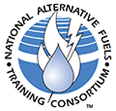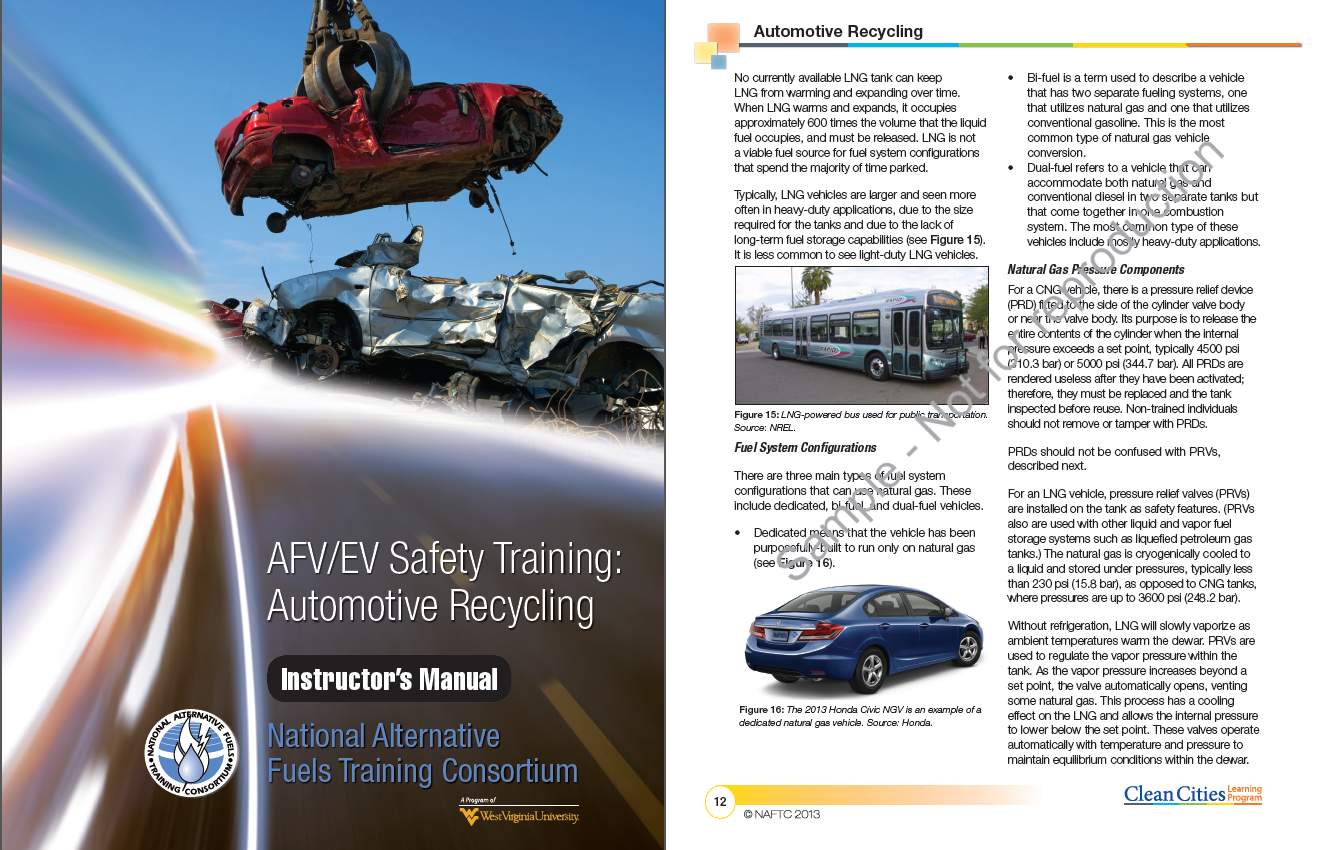AFV/EV Safety Training: Automotive Recycling
Alternative fuel vehicles (AFVs) are becoming more common on our nation’s roadways. With increased vehicle use, more and more of these vehicles will reach the end of their life span and wind up in an automotive recycling location. Automotive recycling operators should be aware of the characteristics of AFVs ensure that they are safely disposed.
After completing this course, participants will be able to:
- Properly and safely identify, assess, and approach an electric drive vehicle (EV) or AFV.
- Name potential hazards of working with an EV or AFV.
- Discuss fuel storage and system components of EVs and AFVs.
- List the basic properties of EVs and AFVs.
- Describe correct personal protective equipment to be used in dealing with an EV or AFV.
- Follow proper procedures for dismantling, recycling, and crushing EVs and AFVs.
For more information email Cristina Dumitrescu at cristina.dumitrescu@mail.wvu.edu or call her at ![]() (304) 293-6906
(304) 293-6906
Course materials provided:
- Participant Manual – ISBN 978-1-933954-15-8
- Includes review questions and learning activities
- Each module of the Participant’s Manual contains text, illustrations, explanatory figures and tables, module review questions, and a list of key terms and abbreviations
Workshop designed for:
- Automotive Recycling
- Fleet Managers
Course outline:
- General AFV and EV recycling operation and best practices
- Introduction to AFVs and EVs
- Components of fuel systems and how they relate to safety during recycling
- Differences between AFVs and conventional vehicles
- Different types of high voltage battery technologies used in EVs and how to recognize their housing




